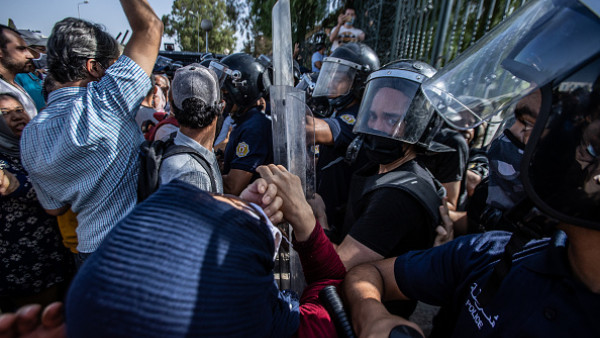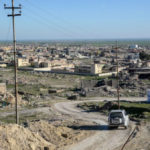Over the weekend, US National Security Advisor Jake Sullivan spoke with Tunisian President Kais Saied to express his support for the Tunisian people, their rights, institutions and rule of law, as well as the importance of forming a new government and stabilising the economy.
This followed a statement by US Secretary of State Antony Blinken Thursday in which Saied assured him that Tunisia is committed to democracy.
These concerns were in response to Saied’s suspension of parliament for 30 days, leading to accusations among many – including the largest party in the government – of him staging a coup.
But while some progressive lawmakers led by Ilhan Omar in Washington called for rethinking aid to Tunisia until democracy is fully restored, the US seems to be taking a cautious approach so far.
Tunisia is not considered a major US ally in the region, though under Obama in 2015 it acquired non-NATO ally status, conferring additional trade and security benefits. What the US will do next will depend on Tunisia’s internal politics and the reaction of its civil society that helped lay the democratic foundations in Tunisia.
“We’re about to find out if civil society will unify and put pressure on the president to organise elections,” Lindsay Benstead, assistant professor of political science at Portland State University, told The New Arab.
“It remains to be seen what will happen. There’s definitely a risk that they will not quickly come out of this.”
Erosion of democracy
To many, Kais Saeid’s power play has not come as a surprise.
Polls over the past ten years have shown a decline in the number of citizens who perceive Tunisia as a democracy, as its transition to free elections has come with rising crime, unemployment and instability. Though the country might have been heading in that direction prior to the uprising, there was likely a high expectation that democracy would lead to an improved standard of living.
According to a recent report by Arab Barometer, a survey service at Princeton, Tunisians continue to support democracy as a form of government. However, their government’s lack of social safety net and services makes them see it as undemocratic.
Right now, poverty – a key reason for the uprising that ousted Ben Ali – is a major factor that has paved the way and created pretexts for the power grab by the president, which risks taking Tunisia back into some form of authoritarianism.
The covid pandemic over the past year and a half has been another important factor in the country’s multifaceted crises, exacerbating inequality and causing a hit to the tourism industry, second only to agriculture in terms of employment.
“It was always going to be a tough transition. The economic situation is massive. It’s the story,” Michael Robbins, project director of the Arab Barometer, told The New Arab.
“There was a sense that there was a bright future ahead. But people’s economic needs were not met. There were signs the international community missed.”
Though Tunisia is not among the poorest countries in the region – in fact, it historically has a vibrant middle class, advanced infrastructure and a high level of education – it nevertheless has continued to grapple with poverty since its 2010-2011 revolution, mainly in rural areas, where it has increased by around 30 percent over the past 10 years. Much of this can be attributed to the continued corruption, along with an expectation of better accountability, since the revolution.
The democratic transition, it was hoped, would bring “socio-economic improvement to the lives of so many Tunisians who have been let down by their state for decades,” which now, “is certainly, rightfully, fuelling the support for President Saeid’s actions,” Sarah Yerkes, a senior fellow with the Carnegie Endowment for International Peace, tells TNA.
“There is no question that Tunisia needed a change and someone needed to shake up the system. The fear, though, is if the means to do so end up harming personal freedoms and ushering in an era of authoritarianism that is no more likely to deliver on anti-corruption or economic growth measures.”
Source: the New Arab
***Show us some LOVE by sharing it!***



